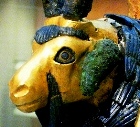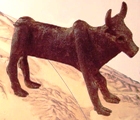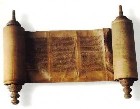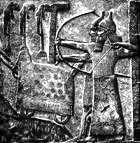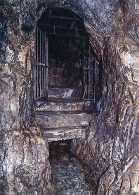A dangerous job
In a way, a prophet was like a medieval court jester. He could tell the king some home truths and get away with it, without fear of punishment. Zephaniah was one such prophet. He may have been related to the king, but even so he showed remarkable courage when he criticized him.
 He was not just speaking to the his monarch: he told anyone who would listen that the whole country was going to the dogs. There was corruption and injustice everywhere, he said, (what’s new?) and he had no intention of keeping quiet about it.
He was not just speaking to the his monarch: he told anyone who would listen that the whole country was going to the dogs. There was corruption and injustice everywhere, he said, (what’s new?) and he had no intention of keeping quiet about it.
If he was around today he would be a whistleblower, honest to the point of recklessness.
Who was Zephaniah
Zephaniah lived during the reign of King Josiah, the reforming king – one of the few kings of whom the Bible writers approved.
Josiah came to the throne when he was only eight years old, after his father the king had been murdered. A regent controlled the country until the boy-king turned eighteen, but as soon as Josiah came into full power he began to show moral as well as political leadership. His aim seems to have been to centralize political and religious power in the capital, Jerusalem.
What’s in this book?

If you sin, you will suffer. It’s as simple as that, says Zephaniah.
In three short chapters he tells his audience that Order (God) is thrown off balance when people do the wrong thing. Punishment is inevitable, because every act has a consequence.
But there is hope. Pain can be put to good use if it makes us stop and think about what we did wrong and where we are going.
Chapter 1: the time is coming when anybody guilty of worshipping false gods (1:4-6), of fraud or violence (1:9), or of ignoring crime (1:12) will be destroyed.
Chapter 2: The only hope is to try to live a good life.
Chapter 3: God will wipe out the city of Jerusalem, but not everyone will die. Some will survive, and God will change them and make them ‘pure of heart’.
Save
Best bits?
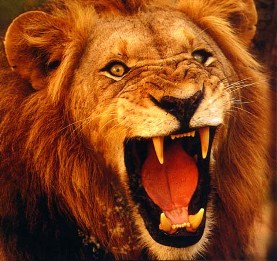
Zephaniah said that: members of the legal profession were hungry, roaring lions
- Commenting on corrupt city officials and the legal profession: they are roaring lions, Zephaniah says. Judges are wolves that leave nothing…. (3:3)
- Warning: the great day of the Lord is near, near and hastening fast; that day will be a day of wrath, or ruin and devastation, or darkness and gloom…. (1:14-15)
Save
Things you should know
- Baal was the Canaanite god of water and storms, and the origin of agricultural fertility. His worship may have had re-enactments of the sexual act, and possibly some form of prostitution (1:4).
- Milcom, with similar powers to Baal, was a god of the Ammonites (1:5).
- One of the secrets of making wine is not to let the liquid settle into dregs; only a lazy wastrel would do so (1:12).
- Gaza, Ashkelon, Ashdod and Edron were four coastal Philistine city-states (2:4).
- The Cherethites were Philistines, traditional enemies of the Hebrew people (2:5).
- Sodom and Gemorrah were decadent cities destroyed by God in Genesis 19 (2:9).
- Ethiopians/Cushites were traditional enemies to the south of Israel (2:12).
- Nineveh was the capital city of the Assyrian empire, much feared by Israel (2:13).
What was happening at the time
Zephaniah lived during the reign of King Josiah, the reforming king – one of the few kings of whom the Bible writers approved.
Josiah came to the throne when he was only eight years old, after his father the king had been murdered. A regent controlled the country until the boy-king turned eighteen, but as soon as Josiah came into full power he began to show moral as well as political leadership. His aim seems to have been to centralize political and religious power in the capital, Jerusalem.
For more on Josiah, see Bible Kings: Josiah.
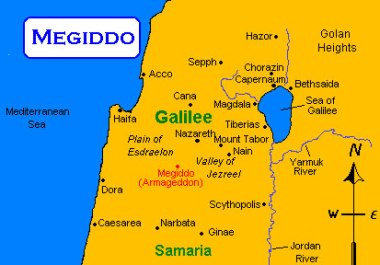
Map showing location of Megiddo, where Josiah was killed fighting the Egyptians
For photographs of Megiddo, where Josiah was killed fighting the Egyptians, see Bible Archaeology: Megiddo
For in the eighth year of his reign, while he (King Josiah) was yet young, he began to seek the God of David his father: and in the twelfth year he began to purge Judah and Jerusalem of the high places, and the groves, and the carved images, and the molten images. They broke down the altars of the Baals in his presence; he demolished the incense altars that stood above them; and the sacred groves, and the carved images, and the metal images, he broke in pieces, and made dust of them, and strewed it upon the graves of the people who had sacrificed to them. He also burned the bones of the priests on their altars, purging Judah and Jerusalem. (2 Chronicles 34:3-5)
What does it have to do with you?
Skim through the Book of Zephaniah, then try to apply his message to today’s world. Imagine him as a crusading journalist trying to right some wrong, urging his readers to show integrity and restraint even if it is unfashionable to do so. What areas of modern life might he choose to criticize?
Or imagine what Zephaniah might say to you personally, if you were to meet. How might he urge you to change your own life?
Bible Study Resource: Prophets and books of the Bible: Zephaniah
Zephaniah page contents
Zephaniah links
© Copyright 2006
Elizabeth Fletcher

